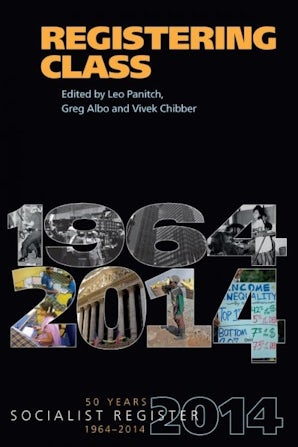Registering Class reviewed in The Progressive Populist

BOOK REVIEW / Seth Sandronsky
A World to Win
Leo Panitch, Greg Albo and Vivek Chibber edit probing essays in “Registering Class: Socialist Register 2014”. Contributors focus in part on the economics and politics of workers’ fragmentation. Capital’s constant breaking up of the laboring class and its re-composition is a recurring theme throughout. Merchant capital looms large.
Journalist Arun Gupta fleshes out the global phenomenon of Wal-Mart. He gleans from interviews with workers and their allies the power of the behemoth retailer’s low pay, low-price business model that relies upon the extraction of wealth from the direct producers. Wal-Mart produces nothing. The company does rely on the value it many subcontractors wring from exploiting workers. Bryan D. Palmer unravels a slice of history on social class relations and dispossession. In his view, precarious employment under capitalism, in its infancy and maturity, defines the system. Capital grows its wage-labor force via dispossession of populations, from India to China and Mexico today, to England and Europe yesterday. The logic drives the grabbing of land, labor and resources for a minority of society, a viewpoint hard to find in mainstream accounts of economics and politics that justify rather than analyze the system.
Ursula Huws lays out the concrete continuities of labor, paid and unpaid, in our hyper-digital age, in contrast to the previous epochs. Her essay brings vital insights to what is (not) new to Marx’s labor theory of value. As the top end of society acquires a mind-boggling share of income and wealth, Claude Serfati considers the key role of the nation-state. His special focus on the European Union clarifies how and why the EU reproduces socially unstable class politics and economics within a global system…

